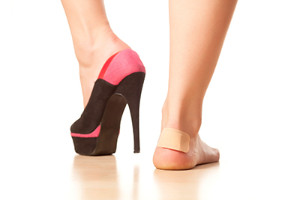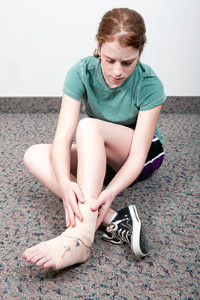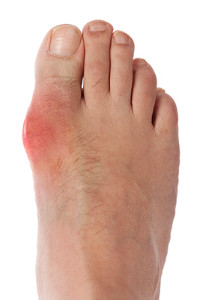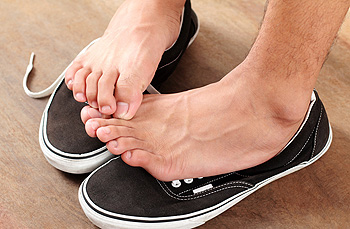Freehold (732) 294-9393
Freehold (732) 294-9393
 Jacksonville Jaguars’ Myles Jack recently injured his ankle while playing in the AFC championship game against the New England Patriots. After the linebacker hurt his ankle in a fumble recovery, the injury appeared to be serious as he was led to the locker room. Jack helped his team finish the game with six tackles, despite the Patriots winning the game 24-20. Jack will make his return to training camp in July while utilizing the entire offseason to recover.
Jacksonville Jaguars’ Myles Jack recently injured his ankle while playing in the AFC championship game against the New England Patriots. After the linebacker hurt his ankle in a fumble recovery, the injury appeared to be serious as he was led to the locker room. Jack helped his team finish the game with six tackles, despite the Patriots winning the game 24-20. Jack will make his return to training camp in July while utilizing the entire offseason to recover.
Sports related foot and ankle injuries require proper treatment before players can go back to their regular routines. For more information, contact Dr. Henry Miller of New Jersey. Our doctor can provide the care you need to keep you pain-free and on your feet.
Sports Related Foot and Ankle Injuries
Foot and ankle injuries are a common occurrence when it comes to athletes of any sport. While many athletes dismiss the initial aches and pains, the truth is that ignoring potential foot and ankle injuries can lead to serious problems. As athletes continue to place pressure and strain the area further, a mild injury can turn into something as serious as a rupture and may lead to a permanent disability. There are many factors that contribute to sports related foot and ankle injuries, which include failure to warm up properly, not providing support or wearing bad footwear. Common injuries and conditions athletes face, including:
Sports related injuries are commonly treated using the RICE method. This includes rest, applying ice to the injured area, compression and elevating the ankle. More serious sprains and injuries may require surgery, which could include arthroscopic and reconstructive surgery. Rehabilitation and therapy may also be required in order to get any recovering athlete to become fully functional again. Any unusual aches and pains an athlete sustains must be evaluated by a licensed, reputable medical professional.
If you have any questions please feel free to contact our office located in Freehold, NJ . We offer the newest diagnostic and treatment technologies for all your foot and ankle needs.
 Wearing high heels may negate the fact that the feet act as shock absorbers. If proper shoes are worn, cushioning in the soles of the shoes generally protects the body from the constant battering incurred while walking and running. However, if the choice to wear high heels is made, the body’s weight shifts onto the balls of the feet, forcing the toes to be crammed into a small area and potentially resulting in all kinds of conditions. There are typically several reasons to avoid wearing high heels, one of which is abnormal movement occurring in the ankles. This can result from the foot being forced to bend forward, possibly restricting circulation in the feet. Additionally, the Achilles tendon is often affected which may cause pain in the calves. If high heels are consistently worn, the ankle and calf tendons may lose flexibility, making it difficult to walk. Good advice is to wear high heels as little as possible.
Wearing high heels may negate the fact that the feet act as shock absorbers. If proper shoes are worn, cushioning in the soles of the shoes generally protects the body from the constant battering incurred while walking and running. However, if the choice to wear high heels is made, the body’s weight shifts onto the balls of the feet, forcing the toes to be crammed into a small area and potentially resulting in all kinds of conditions. There are typically several reasons to avoid wearing high heels, one of which is abnormal movement occurring in the ankles. This can result from the foot being forced to bend forward, possibly restricting circulation in the feet. Additionally, the Achilles tendon is often affected which may cause pain in the calves. If high heels are consistently worn, the ankle and calf tendons may lose flexibility, making it difficult to walk. Good advice is to wear high heels as little as possible.
High heels have a history of causing foot and ankle problems. If you have any concerns about your feet or ankles, contact Dr. Henry Miller from New Jersey. Our doctor can provide the care you need to keep you pain-free and on your feet.
Effects of High Heels on the Feet
High heels are popular shoes among women because of their many styles and societal appeal. Despite this, high heels can still cause many health problems if worn too frequently.
Which Parts of My Body Will Be Affected by High Heels?
What Kinds of Foot Problems Can Develop from Wearing High Heels?
How Can I Still Wear High Heels and Maintain Foot Health?
If you want to wear high heeled shoes, make sure that you are not wearing them every day, as this will help prevent long term physical problems. Try wearing thicker heels as opposed to stilettos to distribute weight more evenly across the feet. Always make sure you are wearing the proper shoes for the right occasion, such as sneakers for exercising. If you walk to work, try carrying your heels with you and changing into them once you arrive at work. Adding inserts to your heels can help cushion your feet and absorb shock. Full foot inserts or metatarsal pads are available.
If you have any questions please feel free to contact our office located in Freehold, NJ . We offer the newest diagnostic and treatment technologies for all your foot and ankle needs.
 A stress fracture typically occurs in the bottom of the leg or foot, due to repeated pressure incurred on the legs. Several types of athletes may suffer from this condition, although it’s common among long distance runners. Most of the symptoms include general achiness, pain in the affected area, tenderness, and swelling. There are a few different ways to diagnosis a stress fracture, including having an x-ray or bone scan performed. Treatment options include rest, and for severe pain, a plaster cast may be used. When the desired sport is resumed after healing, the legs should be stretched completely to avoid re-injury. If you think you may have a stress fracture in your foot or ankle, please consult with a podiatrist for a proper diagnosis and treatment options.
A stress fracture typically occurs in the bottom of the leg or foot, due to repeated pressure incurred on the legs. Several types of athletes may suffer from this condition, although it’s common among long distance runners. Most of the symptoms include general achiness, pain in the affected area, tenderness, and swelling. There are a few different ways to diagnosis a stress fracture, including having an x-ray or bone scan performed. Treatment options include rest, and for severe pain, a plaster cast may be used. When the desired sport is resumed after healing, the legs should be stretched completely to avoid re-injury. If you think you may have a stress fracture in your foot or ankle, please consult with a podiatrist for a proper diagnosis and treatment options.
Activities where too much pressure is put on the feet can cause stress fractures. To learn more, contact Dr. Henry Miller from New Jersey. Our doctor can provide the care you need to keep your pain free and on your feet.
Dealing with Stress Fractures of the Foot and Ankle
Stress fractures occur in the foot and ankle when muscles in these areas weaken from too much or too little use. The feet and ankles then lose support when walking or running from the impact of the ground. Since there is no protection, the bones receive the full impact of each step. Stress on the feet can cause cracks to form in the bones, thus creating stress fractures.
What Are Stress Fractures?
Stress fractures occur frequently in individuals whose daily activities cause great impact on the feet and ankles. Stress factors are most common among:
Symptoms
Pain from the fractures occur in the area of the fractures and can be constant or intermittent. It will often cause sharp or dull pain with swelling and tenderness. Engaging in any kind of activity which involves high impact will aggravate pain.
If you have any questions please feel free to contact our office located in Freehold, NJ . We offer the newest diagnostic and treatment technologies for all your foot and ankle needs.
 When uric acid crystals accumulate in the joints, it may cause a painful condition known as gout. More often than not, gout originates in the big toe, and if left untreated may cause complications. The joints will often feel swollen and stiff, in addition to severe pain being experienced. Gout most often affects middle aged people, the majority being male who may have a hereditary predisposition for it. It is also more common in people who are overweight or drink alcohol in excess. Health issues may also be a factor in causing this condition, including high blood pressure or an underactive thyroid gland. Treatment may begin with lifestyle changes and a balanced diet, in addition to medications prescribed to reduce uric acid in the blood. Please consult a podiatrist if you think you may have gout for treatment options for this painful condition.
When uric acid crystals accumulate in the joints, it may cause a painful condition known as gout. More often than not, gout originates in the big toe, and if left untreated may cause complications. The joints will often feel swollen and stiff, in addition to severe pain being experienced. Gout most often affects middle aged people, the majority being male who may have a hereditary predisposition for it. It is also more common in people who are overweight or drink alcohol in excess. Health issues may also be a factor in causing this condition, including high blood pressure or an underactive thyroid gland. Treatment may begin with lifestyle changes and a balanced diet, in addition to medications prescribed to reduce uric acid in the blood. Please consult a podiatrist if you think you may have gout for treatment options for this painful condition.
Gout is a foot condition that requires certain treatment and care. If you are seeking treatment, contact Dr. Henry Miller from New Jersey. Our doctor will treat your foot and ankle needs.
What Is Gout?
Gout is a type of arthritis caused by a buildup of uric acid in the bloodstream. It often develops in the foot, especially the big toe area, although it can manifest in other parts of the body as well. Gout can make walking and standing very painful and is especially common in diabetics and the obese.
People typically get gout because of a poor diet. Genetic predisposition is also a factor. The children of parents who have had gout frequently have a chance of developing it themselves.
Gout can easily be identified by redness and inflammation of the big toe and the surrounding areas of the foot. Other symptoms include extreme fatigue, joint pain, and running high fevers. Sometimes corticosteroid drugs can be prescribed to treat gout, but the best way to combat this disease is to get more exercise and eat a better diet.
If you have any questions please feel free to contact our office located in Freehold, NJ . We offer the newest diagnostic and treatment technologies for all your foot and ankle needs.
 According to a recent Rutgers University study in the Journal of Chemical Health and Safety, 52 percent of people who visited a nail salon three times in a year had suffered from a skin infection. There are a number of reasons why this might be. Improperly cleaned tools, harsh chemicals like formaldehyde, UV light exposure, or an infected environment all put nail salon patrons at risk for infections. Common infections include athlete’s foot, toenail fungus, contact dermatitis, and even hepatitis in some cases. A number of responders to the study also reported suffering from respiratory conditions after going to a salon as well. If you would still like to go to a nail salon, make sure they properly sterilize their tools, and avoid anything that contains harsh chemicals.
According to a recent Rutgers University study in the Journal of Chemical Health and Safety, 52 percent of people who visited a nail salon three times in a year had suffered from a skin infection. There are a number of reasons why this might be. Improperly cleaned tools, harsh chemicals like formaldehyde, UV light exposure, or an infected environment all put nail salon patrons at risk for infections. Common infections include athlete’s foot, toenail fungus, contact dermatitis, and even hepatitis in some cases. A number of responders to the study also reported suffering from respiratory conditions after going to a salon as well. If you would still like to go to a nail salon, make sure they properly sterilize their tools, and avoid anything that contains harsh chemicals.
Athlete’s foot is an inconvenient condition that can be easily reduced with the proper treatment. If you have any concerns about your feet and ankles, contact Dr. Henry Miller from New Jersey. Our doctor will treat your foot and ankle needs.
Athlete’s Foot: The Sole Story
Athlete's foot, also known as tinea pedis, can be an extremely contagious foot infection. It is commonly contracted in public changing areas and bathrooms, dormitory style living quarters, around locker rooms and public swimming pools, or anywhere your feet often come into contact with other people.
Solutions to Combat Athlete’s Foot
Athlete’s foot can cause many irritating symptoms such as dry and flaking skin, itching, and redness. Some more severe symptoms can include bleeding and cracked skin, intense itching and burning, and even pain when walking. In the worst cases, Athlete’s foot can cause blistering as well. Speak to your podiatrist for a better understanding of the different causes of Athlete’s foot, as well as help in determining which treatment options are best for you.
If you have any questions please feel free to contact our office located in Freehold, NJ . We offer the newest diagnostic and treatment technologies for all your foot and ankle needs.
Read more about Athlete's Foot